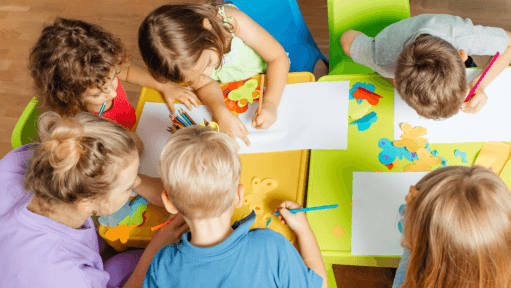
Dubai Introduces Learner’s Passport Initiative to Enhance Early Education Tracking
New System Aims to Support Parents and Ensure Every Child’s Right to Quality Education Under the 'Education Strategy 2033'
A new initiative in Dubai will provide every newborn with a "learner’s passport" to track their educational journey and support parents in making informed decisions about their child's education. The Knowledge and Human Development Authority (KHDA) announced this as part of the 'Education Strategy 2033'. The system, in collaboration with the Dubai Health Authority, aims to guarantee every child's right to education.
Aisha Miran, KHDA's Director-General, emphasized that the learner’s passport will register children of school-going age and monitor their enrollment. The system will help identify children who have not yet joined school, ensuring immediate action is taken to prevent any from missing out on education.
“When a child is born, they are added to the system, giving us a clear understanding of available educational stages. Information about nurseries and early learning centers will also be provided,” Miran explained. She highlighted that the current enrolment rate of Emirati children in early childhood centers is below the global average, affecting their academic growth. "Scientific studies show that 90 percent of a child’s brain development happens between zero to five years, making this a critical stage that shapes their future academic success."
The learner’s passport will also provide parents with comprehensive information about the educational paths available, including both academic and vocational options, helping them make more informed choices for their children.
Key Focus of 'Education Strategy 2033'
The strategy outlines several important goals:
- Parental Awareness: Educating parents about their roles and available educational options.
- Teacher Development: Enhancing teachers' skills with modern training to improve the quality of education.
- Diverse Educational Pathways: Offering multiple academic and vocational options to align with labor market demands.
- Early Field Training: Providing students with practical experiences to prepare them for the workforce.
- Tailored Education Plans: Individual assessments to support students' needs.
- Cultural and Language Preservation: Promoting the Arabic language and cultural identity while addressing the decline in Arabic proficiency among children.
- Improving Emirati Student Performance: Addressing the lower academic performance of Emirati students compared to non-Emiratis.
- Nationalising Teaching: Increasing the number of Emirati teachers by 10%, adding around 3,000 teachers.
The strategy also addresses the challenge of rising school fees, which has impacted access to quality education for many families.
Collective Effort for Better Education
Miran stressed the need for collaboration, engaging parents as key partners in the educational process. Awareness programs will empower parents to support their children's learning journey.
Since KHDA’s restructuring in 2005, Dubai’s educational system has seen significant progress. The number of schools has grown from 136 in 2007 to over 220, now serving more than 32,500 students in private education. Miran noted that 81% of students in private schools now receive a good or higher standard of education, a sharp increase from just 30% in 2007.
The 'Education Strategy 2033' aims to elevate education quality and meet the needs of Dubai’s diverse community, further enhancing the city’s global standing in education.
For any enquiries or information, contact ask@tlr.ae or call us on +971 52 644 3004. Follow The Law Reporters on WhatsApp Channels